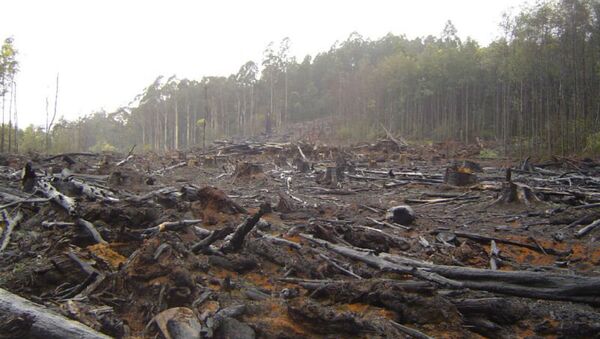"You can think of the Earth like a battery that has been charged very slowly over billions of years," said the study's lead author, John Schramski. "The Sun's energy is stored in plants and fossil fuels, but humans are draining energy much faster than it can be replenished."
Chemical energy is stored in plants, or biomass, which is used for food and fuel, but which is also destroyed to make room for agriculture and expanding cities.
Scientists estimate that the Earth contained approximately 1,000 billion tons of carbon in living biomass 2,000 years ago. Since that time, humans have reduced that amount by almost half. It is estimated that just over 10% of that biomass was destroyed in just the last century.
"If we don't reverse this trend, we'll eventually reach a point where the biomass battery discharges to a level at which Earth can no longer sustain us," Schramski said.
Researchers found that that the vast majority of losses come from deforestation, hastened by the advent of large-scale mechanized farming and the need to feed a rapidly growing population. As more biomass is destroyed, the planet has less stored energy, which it needs to maintain Earth's complex food webs and biogeochemical balances.
"As the planet becomes less hospitable and more people depend on fewer available energy options, their standard of living and very survival will become increasingly vulnerable to fluctuations, such as droughts, disease epidemics and social unrest," Schramski said.
If human beings are still on the Earth in the event the biomass drops below sustainable thresholds, the population will decline drastically, and people will be forced to return to life as hunter-gatherers or horticulturalists, according to the paper.
"These laws are absolute and incontrovertible; we have a limited amount of biomass energy available on the planet, and once it's exhausted, there is absolutely nothing to replace it," Schramski said.
"I call myself a realistic optimist. I've gone through these numbers countless times looking for some kind of mitigating factor that suggests we're wrong, but I haven't found it."




